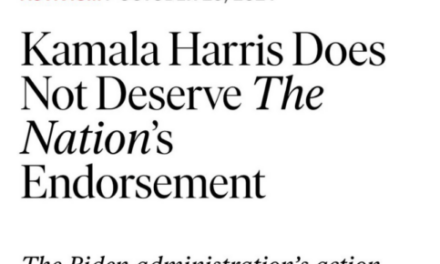We support our Publishers and Content Creators. You can view this story on their website by CLICKING HERE.
John Adams Wettergreen, long-time professor of political science at San Jose State University in the 1970s and 1980s, sadly passed away at the too-early age of 45 back in 1989. At the time he had been writing a magnum opus, which he tentatively called Total Regulation. It was a novel and heterodox account of the rise and transformation of what we today call the administrative state, going all the way back to its earliest roots in the late 19th century. His highly original and deeply researched account—the unfinished manuscript still circulates in samizdat form among a small handful of people—differs from many other conservative accounts of this problem, but he deserves to be counted alongside his contemporary and close friend John Marini as one of the earliest scholars to understand and explain the insidious and anti-constitutional nature of the progressive administrative state.
In particular there is one passage from Wettergreen, expressed in an exchange with Tom West of Hillsdale College in the Claremont Review of Books back in 1988, that describes exactly the lawfare and Covid tyranny of recent years, among other perfidies we can name (like FBI misbehavior). Slightly edited for clarity, it runs as follows:
As late as 1970, I believed that centralization of administration or bureaucratization was the chief domestic evil facing the United States. At that time, I believed that Tocqueville’s soft despotism was the aim of the bureaucratizers. However, today [1988] we cannot be so optimistic as was possible in 1970.
Today’s bureaucratizers are not soft despots at all. The political use of the criminal law, such as began during the Watergate scandals and has begun to be regularized during the Reagan administration, is characteristic of tyranny—not Tocqueville’s “new,” “soft” one, but a harsh one. That is why I concluded by saying, “To the carrot—spending unlimited by law—the legislature has added the stick—the penalties of the criminal law.”
Tocqueville’s democratic despotism does not use criminal penalties; “it would degrade men rather than torment them.” Because he supposed that modern democrats have trivial passions, soft mores, limited educations and ambitions, deep religious convictions, and habits of hard work, he did “not expect democratic leaders to be tyrants, but rather schoolmasters.” On the evidence of the twentieth century alone, he was drastically wrong. Democracies—in Tocqueville’s sense of that term—have proven capable of tyrannies more brutal and more pervasive than anything imagined in previous ages. It is not to our purpose here to explain why Tocqueville was in error, but perhaps it will suffice to say that he misevaluated the human desire to rule. This is an error characteristic of modern political philosophy from Machiavelli on: the assumption that human nature (or a part of humanity) is non-political.

 Conservative
Conservative  Search
Search Trending
Trending Current News
Current News 


